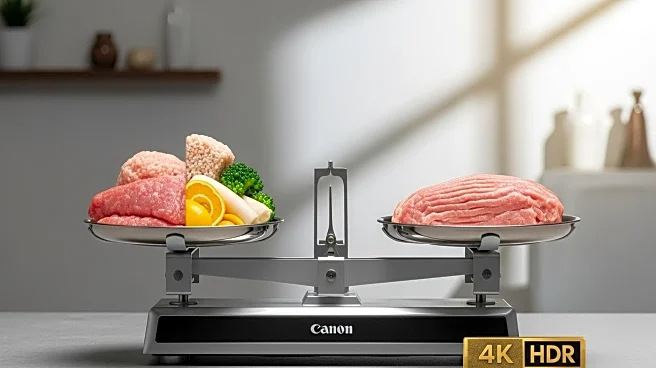What is the story about?
What's Happening?
David Protein has filed new court papers rejecting claims that it is monopolizing the fat substitute ingredient EPG, following its acquisition of Epogee. The legal dispute began when three firms, unable to access EPG, accused David Protein of creating an artificial monopoly. These firms, along with other small companies, have submitted sworn statements detailing the harm they claim to have suffered due to the loss of EPG access. David Protein argues that it is not obligated to sell EPG to firms without long-term supply contracts, suggesting that formulators can choose from various fats and fat substitutes. The plaintiffs, however, assert that their products are designed around EPG's unique properties, and the market David Protein is allegedly monopolizing is the global market for EPG supply. The case is being heard in the Southern District of New York.
Why It's Important?
The outcome of this legal battle could have significant implications for the food industry, particularly for companies relying on specialized ingredients like EPG. If David Protein's stance is upheld, it may set a precedent for how patent holders can control the distribution of their products, potentially affecting competition and innovation in the sector. Companies that have built their products around EPG may face challenges in reformulating their offerings, impacting their market position and consumer base. The case also highlights the importance of securing long-term supply contracts for critical ingredients, which could influence business strategies and contractual practices in the industry.
What's Next?
The legal proceedings will continue as the plaintiffs have filed amended complaints to strengthen their arguments. The court's decision will be closely watched by industry stakeholders, as it could influence future business practices and regulatory approaches to ingredient supply and patent rights. Companies affected by the outcome may need to explore alternative ingredients or negotiate new supply agreements, depending on the court's ruling. The case may also prompt discussions on the balance between patent rights and market competition.
Beyond the Headlines
This case raises broader questions about the ethical and legal responsibilities of patent holders in the food industry. It challenges the notion of whether companies should be compelled to sell patented products to competitors and the impact of such decisions on market dynamics. The legal battle may also influence future regulatory frameworks concerning ingredient supply and patent rights, potentially affecting innovation and competition in the food sector.















